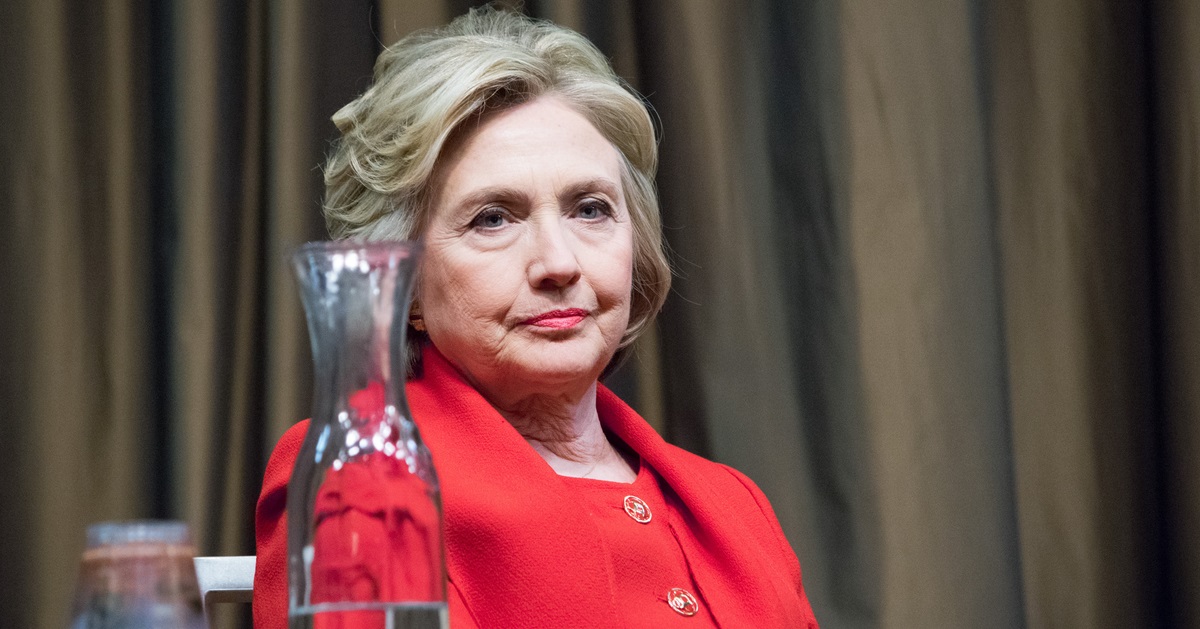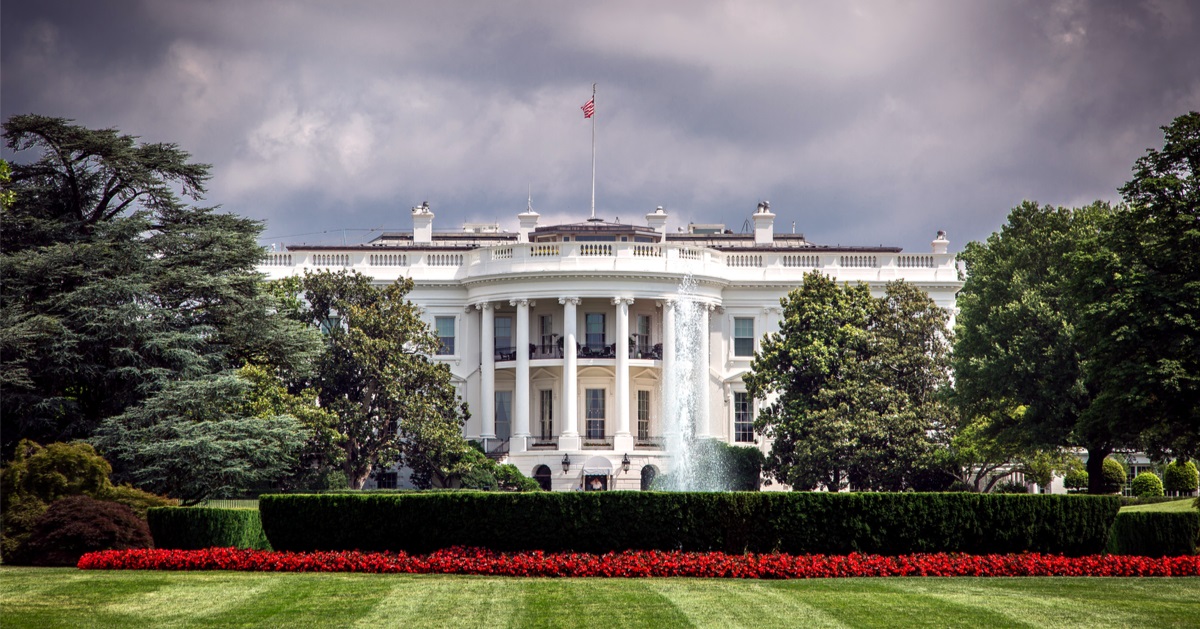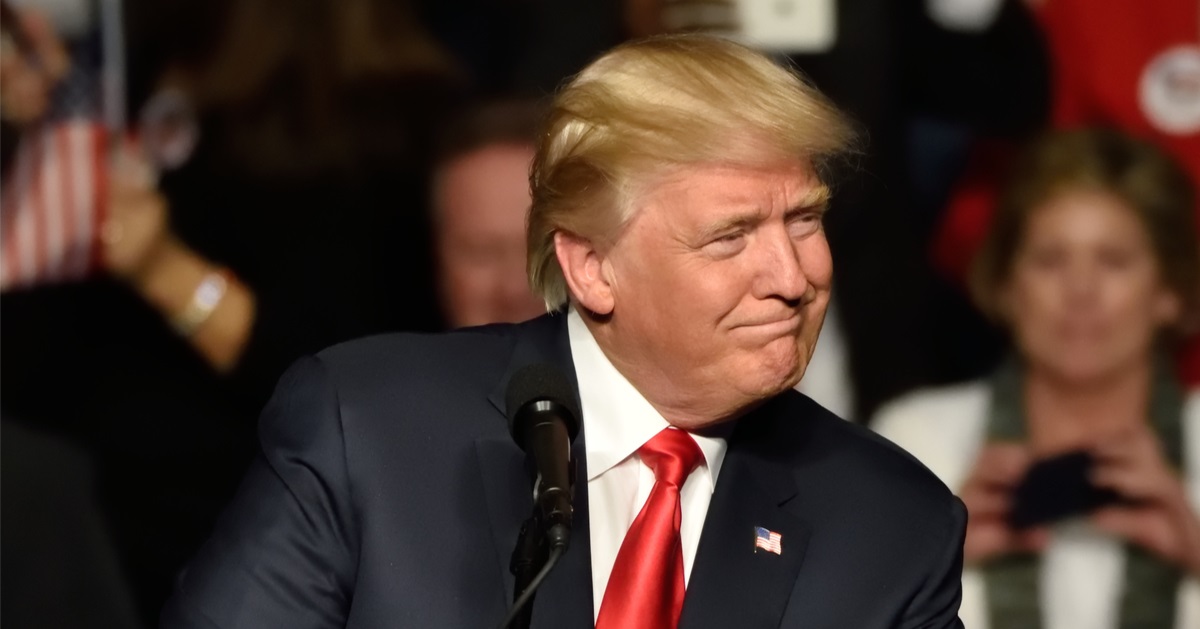Fulton County prosecutors likely nervous about defense interviews of allegedly 'bullied' grand jurors
Former President Donald Trump just vicariously won a small partial victory against Fulton County District Attorney Fani Willis in the Georgia election case that likely has Willis and her team of prosecutors feeling nervous and displeased, according to an MSNBC legal analysis.
The defense attorneys for Trump's co-defendants Kenneth Chesebro and Sidney Powell successfully earned approval from the judge to conduct voluntary interviews with members of the grand jury who are willing to speak with them.
The purpose of such interviews would be to determine if any improprieties occurred during the grand jury proceedings and to obtain any additional information from those proceedings that might be useful in undermining the prosecution's case -- potential findings that would likely prove beneficial to Trump and the rest of the co-defendants charged by Willis with an alleged grand conspiracy to overturn Georgia's 2020 election results.
Balancing defense request for more info with principle of grand jury secrecy
On Tuesday, Fulton County Superior Judge Scott McAfee issued an order on a motion from the attorneys for Chesebro and Powell that requested permission to interview members of the regular grand jury as well as access to sealed transcripts and other materials from the special purpose grand jury.
"Citing concerns for the length and complexity of the indictment, Defendants request interviews with any willing former jurors to determine whether the indictment was 'properly returned,' specifically whether the indictment was read entirely or merely summarized to the grand jury," McAfee wrote. "The State objects, characterizing Defendants’ motion as an attempt to improperly pierce the secrecy of deliberations and “perform an illegal investigation."
Noting that "The proper course appears somewhere in the middle," the judge acknowledged the "well-settled principle" of preserving grand jury secrecy but likewise admitted that not every aspect of grand jury proceedings was subject to that principle of secrecy.
Requests partially granted and partially denied
In finding a balance between those competing claims, Judge McAfee granted the defense motion with respect to voluntary interviews with regular grand jury members but partially denied the request to unseal and turn over all materials generated or used by the special purpose grand jury and agreed to only a limited release of certain information.
The voluntary interviews with grand jurors who are willing to speak with the defense attorneys will be overseen by the judge and limited only to pre-approved questions that survive objections from the prosecution, who will also be allowed to be present for the interviews, and the defense attorneys will be permitted to file future motions based on any information obtained from those voluntary interviews.
As for the request for "a copy of all recordings, transcripts, and interim reports produced by the special purpose grand jury," that was rendered "moot" with regard to the recently released final report and otherwise denied with an exception for materials involving any witnesses who may be re-interviewed by the prosecution post-indictment or called to testify during trial, as well as any materials that may be exculpatory for the defendants.
MSNBC's legal analysis observed, "Needless to say, if there was impropriety in the grand jury or anywhere else in the case, it should be rooted out and dealt with accordingly. And of course, it’s hard to know whether anything improper happened without checking somehow."
"Still, even if prosecutors don’t have a specific concern about such interviews, the general idea is probably not one they’re happy about. In the meantime, the defense lawyers’ forthcoming proposed questions may show more specifically what they’re looking for -- and how they intend to find it," the analysis concluded.
Prosecutors accused of lying to court, bullying grand jurors into indictments
This ruling appears to have been previewed by Judge McAfee during a contentious hearing last week, according to The Hill, in which lawyers for each side snapped at each other, and an attorney for Chesebro, Scott Grubman, accused one of the prosecutors, Dasha Young, of having "lied to the court" in opposition to their request to interview grand jurors who the defense alleges were "bullied" by prosecutors into issuing the indictments.
"I cannot take Ms. Young’s word for it that it was done properly," Grubman told the judge with regard to the grand jury proceedings. "Ms. Young is trying to send my client to prison, and we have the right to know if it was done properly."
McAfee did not issue his ruling at the time of that hearing but nonetheless signaled that he was inclined to grant the request for voluntary interviews while remaining more circumspect about releasing all of the special purpose grand jury materials.






